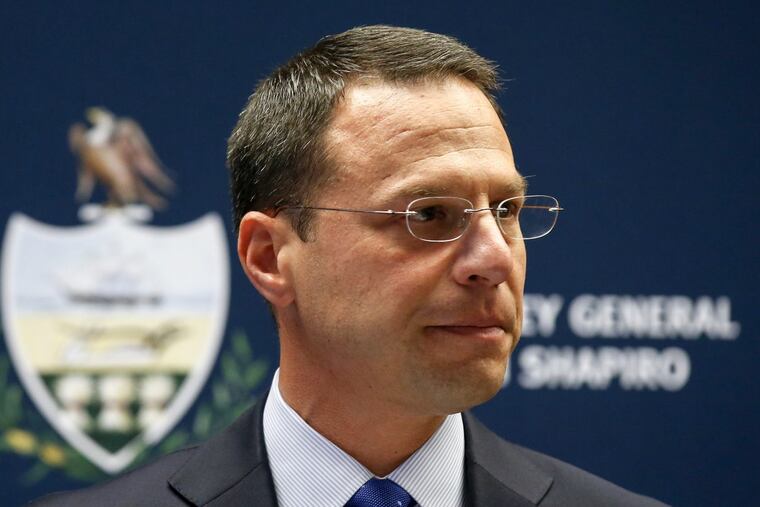Does anyone care that 'safe injection sites' are neither safe nor legal? | Stu Bykofsky
That the (not) safe injection sites are illegal is something the proponents ignore or brush off.

Thank you, Pennsylvania Attorney General Josh Shapiro, for giving me cover so I don't wind up being painted as the "worst person in the world," the label Keith Olbermann used on his TV show to hang on people he didn't like.
I have been silent as the opioid epidemic raged because I had no clear-cut solution. The debate currently swirls around the idea of city-approved "safe injection sites," more formally known as CUES — comprehensive user engagement sites.
CUES lacks a clue.
First, contrary to the name, "safe injection sites" are not "safe."
We have so many overdoses because of the unpredictable potency of the drugs. "You shoot this poison in your veins and you have no idea whether you're going to live or whether you're going to die," says Shapiro.
Second, the sites would be against the law, Shapiro was quoted as saying. I was so happy to read that the state's chief law enforcement officer believes in law, I had to talk to him.
Turns out he has his own ideas about how to fight the opioid epidemic.
First, arrest the dealers. Second, go after doctors to prevent diversion of legal drugs to illegal use. Finally, he tells me, take on pharmaceutical companies to slow the flow of drugs into the community.
That injection sites are illegal is something CUES proponents like to ignore or brush off.
At the (not) safe injection sites, volunteers would provide life-saving doses of naloxone to those who overdose. Will the (not) safe injection sites do anything to reduce drug use, or will they actually expand drug use by providing life preservers?
I understand the impulse to help, but it is misguided.
Would we consider safe smoking sites where tobacco addicts could light up and be handed oxygen canisters? How about safe alcohol venues where drunks can get blasted with volunteers waiting to drive them home? Both smoking and alcohol kill, but not as fast as heroin or fentanyl.
Current progressive thinking is that drug addiction should not be treated as criminal. Mayor Kenney and District Attorney Larry Krasner wrote in an op-ed piece, "We now know that addiction is a disease." What I know is that if it is, it is voluntary, and defining it purely as a medical issue seeks to normalize self-destructive behavior. We are even cautioned not to call them "addicts" because that's so … so … mean, I guess.
Most of my life I smoked cigarettes, which we are told is a more powerful addiction than heroin. Having not been a junkie, I can't be sure. I quit cigarettes more than two years ago. Nothing would have worked before then, because I didn't want to quit. The thing we do not know, the "X" factor, is how to get an addict to want to quit.
In their piece, Kenney and Krasner call for treatment, but the (not) safe injection sites "do not provide an effective path to treatment," Shapiro tells me. Addicts are given clean syringes and medical supplies, which encourages them to remain addicts — and also supports the drug cartel that furnished the drugs. Is that what we want?
Such sites have been open in Vancouver for 14 years, and the results are mixed.
I think that's the best Philly can expect. The result — encouraging illegal behavior and dangerous drug use — should not be the best we can do.